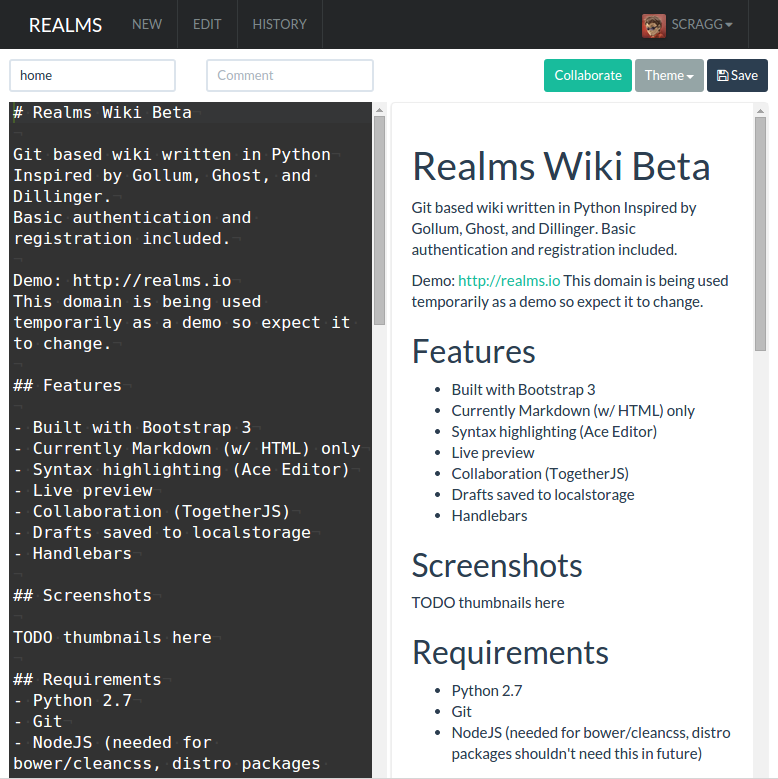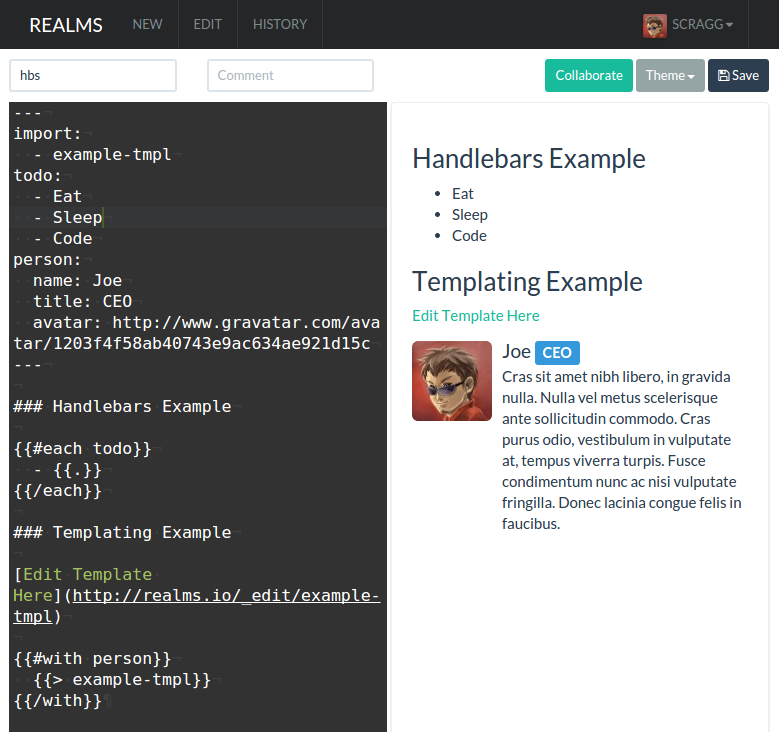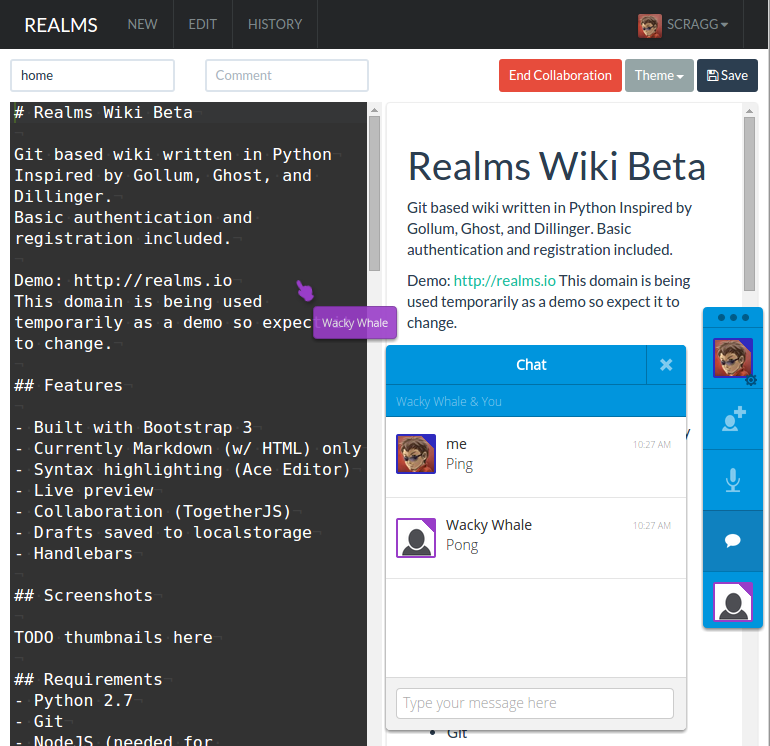Realms Wiki is A Git-based Wiki for Developers and Teams
Table of Content
Realms is a free open-source Git-based wiki written in Python Inspired by Gollum, Ghost, and Dillinger. It is a fairly easy to setup, configure, and use.
Realms supports multiple user collaboration using TogetherJS and Firepad library. It
It comes with basic search capabilities, however this is not recommended for large wikis or if you require more advanced search capabilities. We currently support Elasticsearch and Whoosh as alternative backend.
Features
- Built with Bootstrap 3.
- Authentication
- Markdown (w/ HTML Support).
- Syntax highlighting (Ace Editor).
- Live preview.
- Collaboration (TogetherJS / Firepad).
- Drafts saved to local storage.
- Handlebars for templates and logic.
- Easy to install from source or using Docker
- Supports LDAP authentication
- Supports OAuth
- Command-line tools to run, edit and manage the Wiki
- Easy templating using Handlebars.
Screenshots





Requirements
- Python 2.7 (Python 3.x is a WIP)
Optional requirements
- Nginx (if you want proxy requests, this is recommended).
- Memcached or Redis, default is memonization.
- MariaDB, MySQL, PostgreSQL, or another database supported by SQLAlchemy, default is SQLite. Anon or single user does not require a database.
- Docker for installation
Platforms
- Windows
- Linux: Ubuntu, Fedora, CentOS, RHEL
Install Realms using Docker
You can simply use Docker to install your Wiki and it would not take a min.
docker run --name realms-wiki -p 5000:5000 -d realms/realms-wiki
License
- GPL-2.0 license











